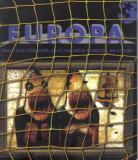EUROPA ŞI LIMBILE EI: MULTILINGVISMUL CA POLITICĂ, IDEE ŞI PRACTICĂ
EUROPE AND ITS LNGUAGES: MULTILINGUALISM AS POLICY, IDEA AND PRACTICE
Author(s): Nikola TomićSubject(s): Cultural Essay, Political Essay, Societal Essay
Published by: Fondul Europa
Keywords: multilinguism; language; European Commission
Summary/Abstract: Europe is considered the cradle of civilization, and even the term civilization stems from Europe. No matter if one accepts this Eurocentric view of civilization or not, one cannot deny the importance of the cultural heritage of the European continent. The question arises: how, in the 20th century, the countries of Europe, unified in a union of states cope with the innate need to preserve ones identity and cultural heritage. This paper will focus on one aspect of the cultural identity – language. The paper will describe EU’s policy on language and multilingualism, presenting the EU’s idea concerning the languages spoken in Europe, the development of this idea, and the recent developments in dealing with the expansion of languages spoken in EU, arising as a consequence of recent enlargements of the EU. The paper will conclude with a brief comparison of EU’s solution and languages with the language policy of Serbia’s autonomous province of Vojvodina and provide some food for thought on the future of EU’s language policy. The European Union uses 23 official languages. As set out in the founding Treaty of the European Union, “the basic principles underlying its language policy are that EU citizens should be able to contribute to the building of the EU, be informed about what the EU is doing in their name, and have access to EU law in a language they can understand.”26 Language plays a great role in the formation and development of one’s cultural identity. The European Commission has understood this and has developed a separate policy on multilingualism which involves several Directorate Generals (DGs). The core ideas behind the goals and targets of the EU and its multilingualism policy are both pragmatic and idealistic. The pragmatic side of the core ideas is related to the use of languages in international business. Besides the pragmatic purpose the European Commission points out another, more idealistic aspect of multilingualism, namely the idea of languages as an “instrument to improve mutual understanding and integration.”27 Promoting multilingualism across the European Union would not be possible without applying it within the European Union institutions themselves. The European Commission has created two portfolios and two Directorate Generals, which help in applying multilingualism within the institutions themselves. These two DGs are Directorate General for Interpretation and Directorate General for Translation. Throughout the years, the Directorate for Interpretation has offered its services for the spoken word, allowing for better communication within the different bodies of the EU. Besides interpretation during conferences and meetings of EU bodies, there is a need of translation of the written products of these meetings and conferences. This job is assigned to the Directorate General for Translation. What stands behind interpretation and the translation of such a great amount of documents is a great end
Journal: Europa, revistă de literatură, artă, cultură şi tranziţie
- Issue Year: 2009
- Issue No: 03
- Page Range: 5-13
- Page Count: 8
- Language: Romanian

